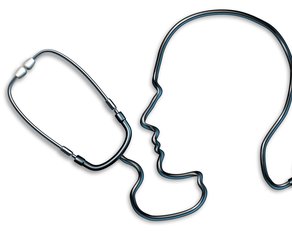Sensus
Psychotherapy
Health Anxiety / Hypochondriasis

Most of us worry about our health from time to time. Some of us may even have to manage ongoing medical conditions.
Unfortuantely, for some people, health worries become overwhelming and a problem in itself.
Health Anxiety (Hypochondria) is excessive worrying about your health, to the point where it causes great distress and affects your everyday life.
Some people with health anxiety have a medical condition, which they worry about excessively. Others have medically unexplained symptoms, such as chest pain or headaches, which they are concerned may be a sign of a serious illness, despite the doctor's reassurance.
Others may be permanently anxious about their future health, worrying about things like: "What if I get cancer or heart disease?"
What causes health anxiety?
There are many reasons why someone worries too much about their health.
You may be going through a particularly stressful period of your life. There may have been illness or death in your family, or another family member may have worried a lot about your health when you were young.
Personality can be a factor. You may be vulnerable to health anxiety because you are a worrier generally. You may find it difficult to handle emotions and conflict, and tend to "catastrophise" when faced with problems in your life.
Sometimes, health anxiety can be a symptom of a mental health condition, such as depression or anxiety disorder, which needs recognising and treating in its own right (see below).
Types of health anxiety
People with health anxiety can fall into one of two extremes:
- Constantly seeking information and reassurance – for example, obsessively researching illnesses from the internet, booking frequent GP appointments, and having frequent tests that don't find any problems.
- Avoidant behaviour – avoiding medical TV programmes, GP appointments and anything else that might trigger the anxiety, and avoiding activities such as exercise that are perceived to make the condition worse.
Neither of these behaviours are helpful, and need addressing if you are to break the vicious circle of health anxiety.
Health anxiety can be a vicious circle!
If you constantly check your body for signs of illness, such as a rash or bump, you will eventually find something. It often won't be anything serious – it could be a natural body change, or you could be misinterpreting signs of anxiety (such as increased heart rate and sweating) as signs of a serious condition. However, the discovery tends to cause great anxiety and make you self-check even more.
You may find yourself needing more reassurance from doctors, friends and family. The comfort you get from this reassurance may be short-lived, or you may stop believing it, which only means you need more of it to feel better. Seeking reassurance just keeps the symptoms in your head, and usually makes you feel worse.
When physical symptoms are triggered or made worse by worrying, it causes even more anxiety, which just worsens the symptoms. Excessive worrying can also lead to panic attacks or even depression.
Cognitive Behavioural Psychotherapy (CBP) is indicated by the National Institute for Clinical Excellence (NICE) as a treatment of choice for people experiencing Health Anxiety.
Copyright © All Rights Reserved